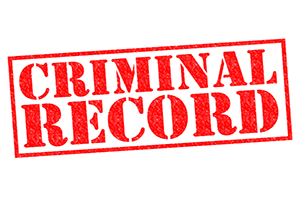Collin County Criminal Records
Criminal charges become criminal records once a person is found guilty of the allegations in court. There are 3 main types of criminal records, including felonies, misdemeanors, and infractions. Each of which have much different circumstances and severity of the crimes that have been committed. Understanding the differences between these when conducting a Collin county criminal records search can be helpful with researching them, and what judicial division to access them from. We'll cover the basics on how to lookup criminal convictions, what they mean, and if they can be expunged.
Differentiating Between Misdemeanors, Felonies, and Infractions
The different types of crimes that we experience in the Untied States are classified into 3 main categories. Within these categories are different levels of severity, and the punishments for them reflect these nuances. While infractions and misdemeanors rarely result in prison time, they are still punishable by fines, community service, probation and restitution. Felonies on the other hand are the most serious of crimes, which will land someone with some serious jail time, and can potentially put that person away for life such as capital crimes. Here are the main differences between these three categories of crimes and their respective classifications:
Misdemeanors
Misdemeanors are some of the most common criminal offenses, which are much less severe than felonies. In Collin County, these are typically punishable by fines and/or jail time of less than one year. Common examples include petty theft, simple assault, and some driving offenses.
1). Class A Misdemeanors: These are the most serious misdemeanors, such as theft of property valued between $750 and $2,500.
2). Class B Misdemeanors: Less severe, including offenses like possession of small amounts of controlled substances. Larger amounts can result in a felony.
3). Class C Misdemeanors: The least severe, often involving traffic violations and other minor offenses such as DUIs and trespassing.
Felonies
Felonies are the most serious crimes that usually mean there was intentional and significant harm to others, or significant property damage. They carry much stiffer penalties, including prison sentences of a year or more. Examples include aggravated assault, grand theft robbery, and arson.
1). Capital Felonies: The most severe, potentially leading to life imprisonment or the death penalty, which is allowed in the state of Texas.
2). First to Third-Degree Felonies: Varying in severity, these include serious high-dollar thefts, aggravated assaults, and drug offenses with intent to traffic.
3). State Jail Felonies: Less severe than third-degree felonies but more serious than misdemeanors, such as credit card fraud, identity theft, and DUIs that result in injuries.
Infractions
Infractions, commonly ordinance violations or minor traffic violations, are not usually serious crimes, and rarely result in jail time or someone being arrested. Examples include parking tickets, speeding tickets, and noise complaints. These are usually punishable by fines and do not result in a criminal record.
How to Run a Criminal Records Search in Collin County
Whether for personal reasons or employment purposes, accessing criminal records in Collin County Texas can be done through multiple online platforms, or in-person. Here is how to access a specific criminal records, or someone's entire criminal history:
County Clerk Criminal Search
A straightforward way to access a specific Collin County criminal conviction is through the official County District Clerk's Case Search Platform. You can search by name, case number, or case number. This resource will only allow you to access singular criminal convictions, not their entire history. Also keep in mind that some records might require a fee physical copies.
Texas DPS Criminal History Check
The Texas Department of Public Safety offers a criminal history name search that is publicly accessible. The public can access unofficial copies of these records by name and date of birth. These records will show someone's complete criminal conviction history within the state of Texas. You will need to submit the form, with identification, and pay the appropriate fee.
Third-Party Background Check Websites
For those that want to find out every criminal record, including those for all of Texas as well as other states, can use a background check website. These sites aggregate records from multiple resources giving a much better picture of a person's past than state or county government agencies. These resources are mostly used to verify someone is who they say they are. These third party providers are typically fee-based where you can either pay for a single report, or sign up for a monthly subscription and run unlimited reports. One of the benefits of these services is instant results. You do not need to submit any forms, or wait for approval.
In-Person Record Requests
For a more hands-on approach, you can visit the respective County Courthouse in person. Here, you can request access to public records and seek assistance from court clerks if you need some extra help. Be prepared to show proof of identification and any necessary details for your search such as name and date of birth and cast number.
Steps to Expunge a Criminal Record in Collin County Texas
Expungement, or the process of erasing, sealing or redacting a criminal record from the public eye can offer some people a fresh start. Here's a simplified guide to the expungement process:
Eligibility
Not all records are eligible for expungement; most infractions and misdemeanors are, while most felonies are not. Generally, you may qualify if:
1). You were acquitted or found not guilty.
2). Your charges were dismissed.
3). You completed a pre-trial diversion program.
4). You were convicted of certain misdemeanors as a juvenile.
Filing a Petition
If eligible, the first thing you must do is file a petition for expunction in the court where your case was handled. This involves filling out specific forms and paying the filing fee. Most circumstances will need the help of an attorney to make sure that everything is filled out and processed correctly.
Court Hearing
After filing your petition, a court hearing will be scheduled. During the hearing, you (or your attorney) will present your case to the judge for expunction. If the judge grants your request, the court will issue an order to expunge your records.
After Expunction
Once the expunction is complete, the records are sealed, and you can legally deny the existence of those records in most situations. However, certain government agencies may still have access to expunged records.
How to Run a Criminal History Check in Collin County
If you want to lookup someone's Collin County criminal history you can visit the Texas DPS website and pay for a criminal history report. However, that will only show criminal records for the state of Texas. If you want to check on someone's criminal history, that includes other states, then using a background check website is a better option. These resources pull information from national databases to find criminal records in every state.
Can Anyone Check Someone's Criminal History in Collin County Texas?
Yes, since a person's criminal history is considered public record anyone can lookup this information online. All you need is the person's full name and date of birth to run a background check on someone. You can use either the Texas DPS Criminal History Name Search tool, or use a third party background check website.
Are Collin County Crime Records Considered Public?
Yes, they are considered public records. This means that anyone who wants to look up any crime records can. All you need is the name of the person you want to research and their age or date of birth. Then, using either government or third-party resources, you can access this information without needing to ask permission.


